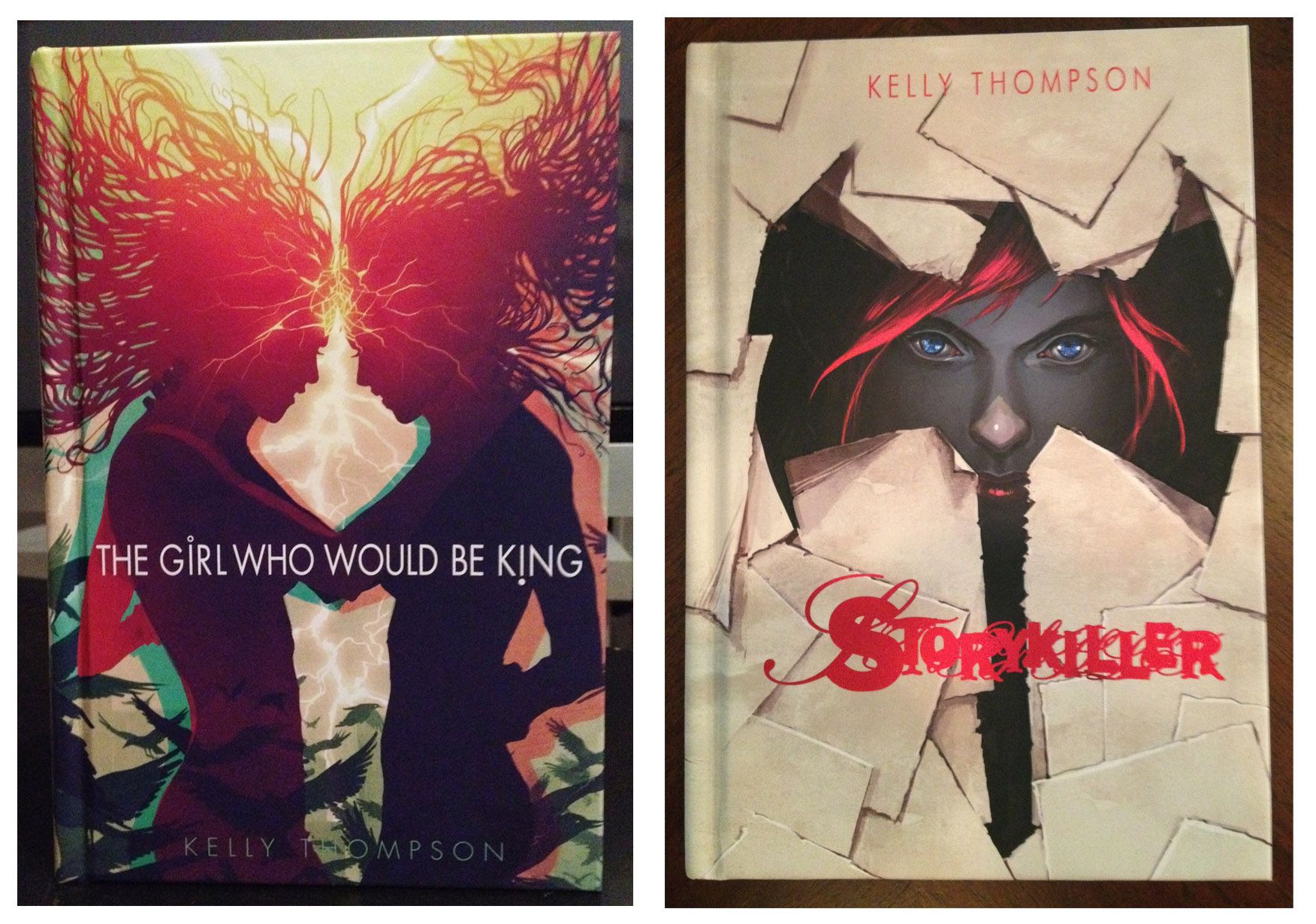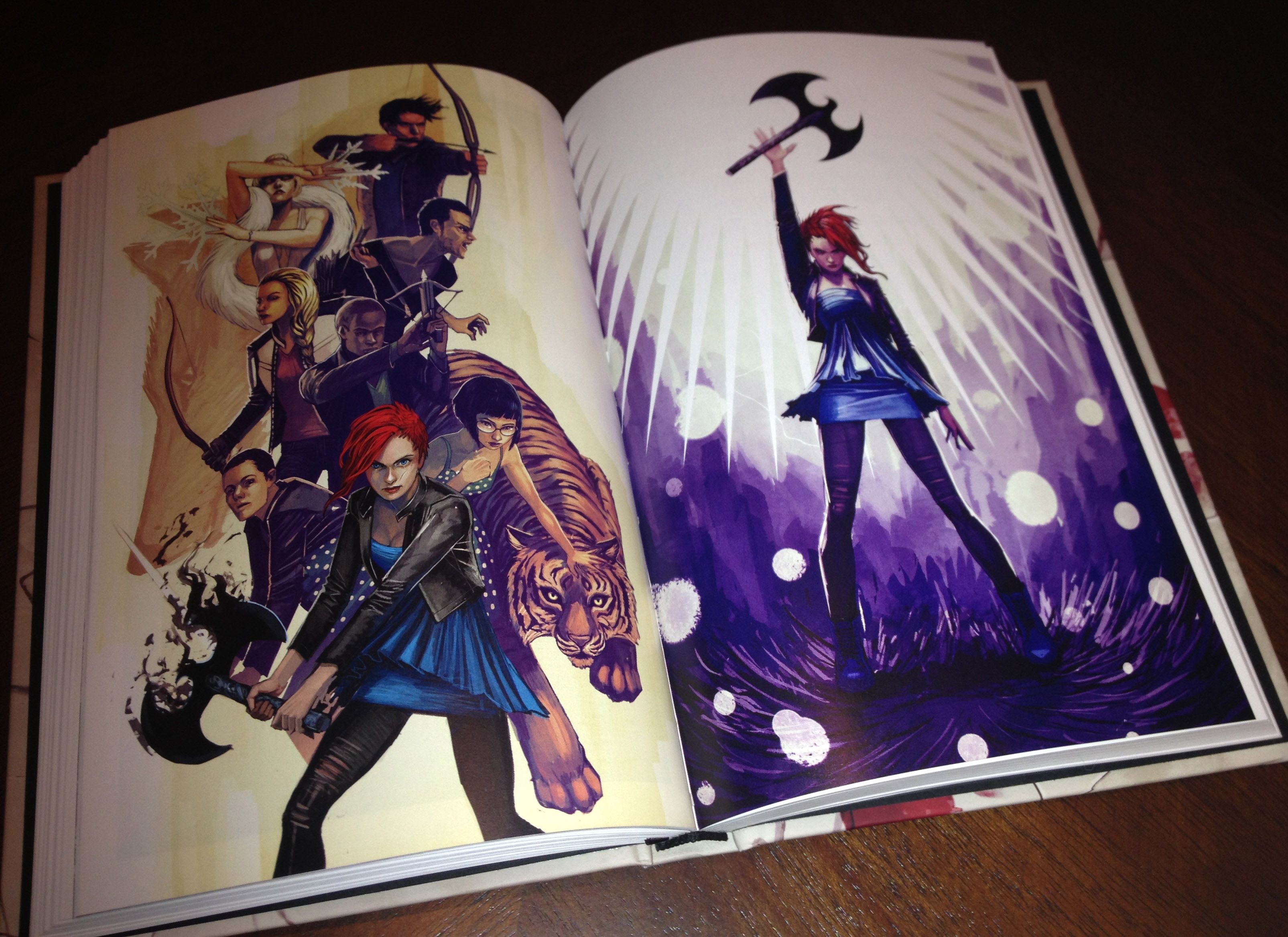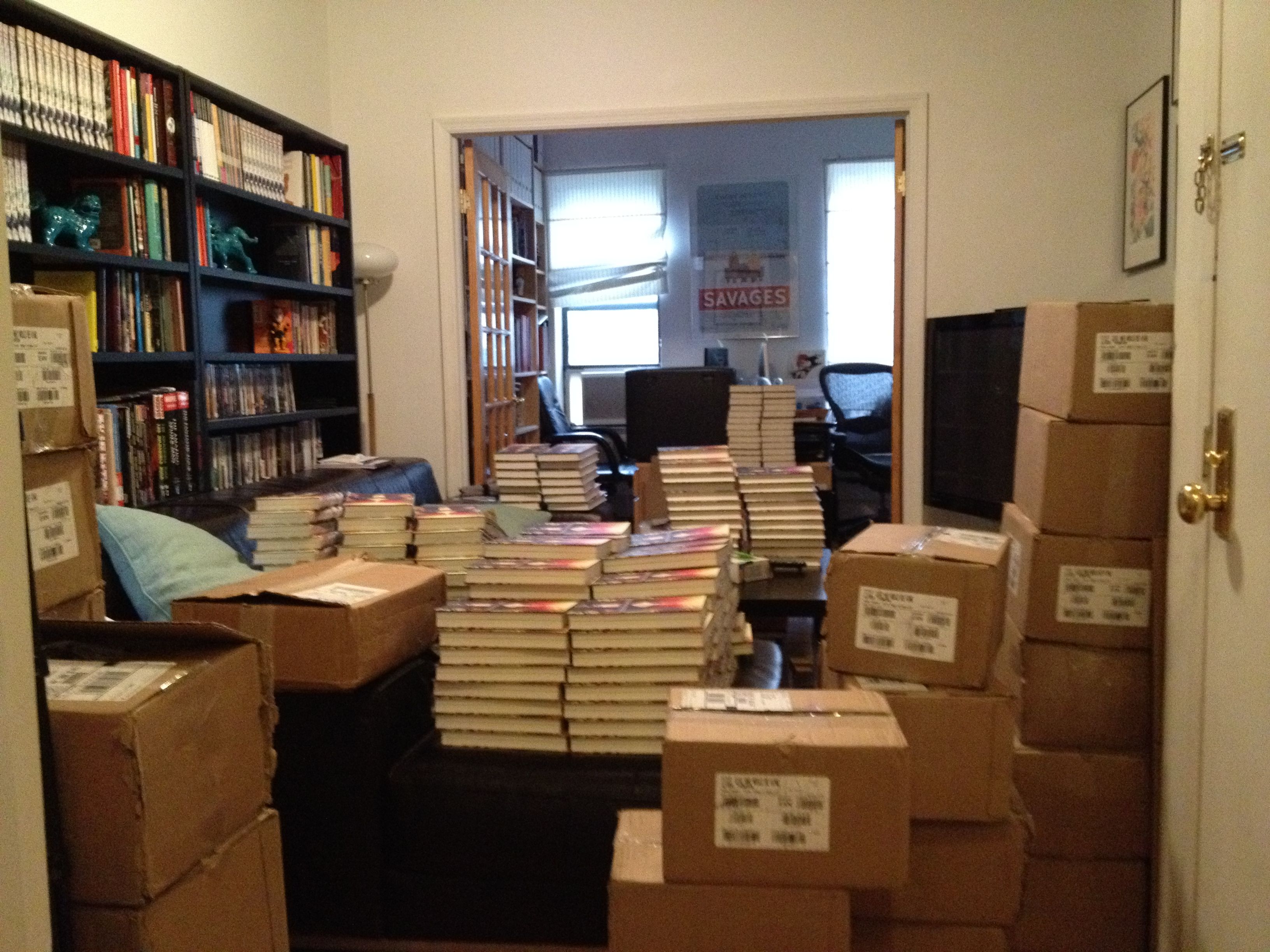So I wanted to tackle this concept today for three reasons.
1. Because there was an aggressive attempt at a really classic form of silencing early on this comments to the excellent CSBG guest post Let Girls Take The Lead by Barbara Slate.
2. Because I, like many out there, AM working hard to create, and I thought it might be beneficial to some people that don’t create (or don’t yet) to understand exactly what is involved in “creating” and why it’s particularly annoying for people to assume we’re not doing that very thing. And—
3. Because I am swamped with work doing that exact thing (creating/running a business) and so this was a timely moment for me to talk about this issue and I’m too busy to think much about actual comics right now, so this felt right.
Here’s the offending comment that was left:
“I love how everyone wants comic book publishers to do something to push a socio-political agenda to make themselves feel better. So what if the sales numbers wouldn’t be there? Marvel and DC should lose money to raise awareness.
If you feel that passionately about it risk your own money. Start your own comic book company. Get a kickstarter going. It’s so easy to tell other people how they should spend their money to suit your needs.”
So, to many of you, it’s obvious why this is a classic silencing technique, but for the rest of you, let me break it down. In the simplest of terms, it’s just plainly not your job to tell anyone else what they’re allowed to talk about, or HOW they’re allowed to talk about it. So long as they’re not infringing on the rights of others, you don’t get to critique what they want to discuss or how they want to discuss it.
Telling someone that their thoughts, feedback, ideas, etc., are not valuable unless they also create their own work, “risk their own money,” “start their own comic book company,” “get a kickstarter going,” etc. - is not your right. I mean, sure, you can SAY it, we’re all on the freedom of speech boat, you can say it all you like, but if you care that what you’re saying is empirically wrong and a classic way that people try to keep others from having a voice, then no, you shouldn’t say it.
Let’s break down just some of the problems with this idea:
#1. It immediately disenfranchises people. People that have little free time or limited access to funds are very unlikely to be able to start their own comic book company, or create a publishable book (and more on those challenges a bit later). And blocking people who may have some additional hurdles closes down the conversation - people with these disadvantages should be just as able to talk about what kind of books they’d like to see, what they don’t like to see, why it’s a problem, and to just generally be a part of a community or activism. There isn’t a “minimum level of investment” required to become involved. Or rather, there shouldn’t be. And of course all of those ideas tie back to “fake geek girl” nonsense as well.
#2. You’re also immediately devaluing the opinion of anyone that doesn’t have either the desire or talent to create a comic book or to build a comic book company from scratch. Forget for a moment that both those things are extremely hard to do and even harder to do well/successfully. There are plenty of people that don’t actually even WANT to do those things. Not wanting to be a comic book creator doesn’t mean they don’t deserve good books to read and it doesn’t mean that they don’t have every right to talk about those things – whether it be in a column, forums, a tumblr, or even in their local shop. Not having the desire to write a comic book, or run a small business (a comic book company) does not mean you give up your right to want to read books that interest you or to talk critically about an industry.
And now I want to circle back around to how hard these things are and how long they take for people that DO have the desire to do these things and are proactive about it and why it’s so frustrating to have the “create your own book!” cry lobbed randomly at a person.
I have now run two very successful Kickstarters. One for a superhero novel (The Girl Who Would Be King) and one for Storykiller, novel with illustrations by comic book artists (see below). Though wildly successful in every possible way, they were (and are, since I’m still in the process of executing the second one) Herculean efforts that take more time and energy than you can imagine. Work on the first one, which ran in June/July of 2012 began in February of 2012 and was not “completely finished” until December 2012. Work began on the second in October of 2013, it ran in February 2014 and it will not be complete until the May 2014. And my campaigns are fast comparative to most. But they are a fulltime job, and that doesn’t even include the time and energy that goes into creation – you have to create before you can even consider something as daunting as a Kickstarter. It’s certainly not for the faint of heart, but it’s also just not for everyone - faint of heart or otherwise. AND there are many people that it could and WOULD be for, but who have not been afforded the opportunities and luck that I have, and so they haven’t been able to take the time and energy to do it. It’s frustrating to have people throw around the words “oh, just run a kickstarter” as if that is something done cavalierly.
More specific to comics, I have an OGN forthcoming from Dark Horse in either 2014 or 2015. And to give you a sense of how long even that process can take consider that I wrote the first script years and years ago and then went back to it and rehabbed it in 2011 while saving up some money to hire an artist to do the pitch. I found my artist in January of 2012. Once she was on board I finished the whole thing and sent it to her in March of 2012. She spent a couple months getting the visuals ready for the pitch and in June of 2012 we began pitching it to comic book companies. We didn’t have any solid responses/legit interest until December of that same year. It took several more months for it to get to the final approval stage at Dark Horse, and it was in May of 2013 when we knew it was a go and June of 2013 – a FULL YEAR after we pitched – when we finally signed contracts and got some payment. As many of you know, unless you are one of the big creators at one of the big companies comics doesn’t pay much - and even then it’s still a fraction of other creative industries like TV, film, and even prose, depending on the exposure level - so my artist cannot work full time on the book, which means it takes longer to finish. So with luck, it will be out in late 2014 or early 2015, based on the speed at which we’ve been moving so far. So NOT even including any of the original creation and writing process for this particular project, it is still going to take between three and four years to birth it into the world.
Does it always have to go that slowly? No. Will it always go that slowly? I hope not. Is it easier for more established artists/writers? I’m sure it is, and I hope it will be for us too someday. Still, this is to point out that this is a PROCESS. It takes time. Especially if you are a new creator just starting out. And it’s terribly offensive when people shout out
“Well, if you want things to be different than why don’t you write your own comic?!?” or “Shut up unless you create your own work” or “Put your own money and time where your mouth is and just do it yourself.”
Because I want to shout: “I AM ALREADY DOING THAT YOU UNBELIEVABLE DOUCHEBAG.”
But here’s why I (generally) don’t shout that…because that guy/gal who says that, doesn’t actually care.
The people who say those things don’t want me to write a comic or start a comic book company. They only say it because they perceive it will shut me up. Because they’ve used it before and it’s worked. Because it’s a classic silencing technique designed entirely to make people feel bad about themselves. To make them feel like talking critically (or positively for that matter) about comics is not valuable and that they have somehow not earned the right to have an opinion. That there is some magical thing other people are doing that they are not that has made it okay for said douchebag to have an opinion, but not for them.
But it IS valuable. We’re a very small community in the grand scheme of things and a strong passionate community can do almost anything. And it’s up to us what kind of a neighborhood we have. So far, it’s pretty shitty. But I see a lot of clean up going and a lot of efforts being made to confront that and so I want to make sure I’m right up front.
So. To those of you that may have used this technique in the past and may not have realized what you’re doing when you say it, this was a lesson for you and I hope it helped.
To those of you who know exactly what you’re doing and do it because you have small hateful hearts filled with bitterness and rage, well, I don’t know why you’re even reading in the first place, but go away.
And to those of you that talk about comics, positively, negatively, and everywhere in between -- don’t stop. Don’t let them shout you down. Whether you create comics and know how hard it is and how damn long it takes, or have zero interest in creating comics and just want to read some great ones – we all have a voice at the table – important ones.
The vast majority of us are here because we love comics, are passionate about them, and want them to be as good as they can possibly be and we come at them from all angles – as readers, as fans, and as creators, but you don’t have to be all things just to have a voice - and don’t forget it.
Now, I have to go, because I have to go run my small business for my writing career, as 1300 copies of my new book just arrived on my doorstep -- in fact, see the nightmare of the picture below and understand that that was an order HALF the size of the one I just received. Woo. Creation.




